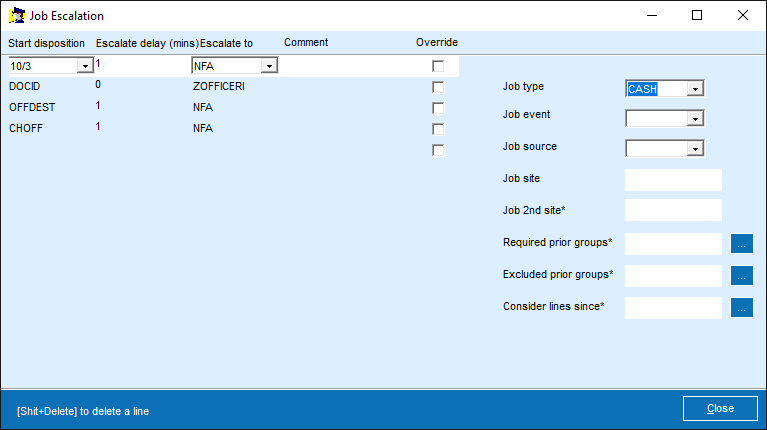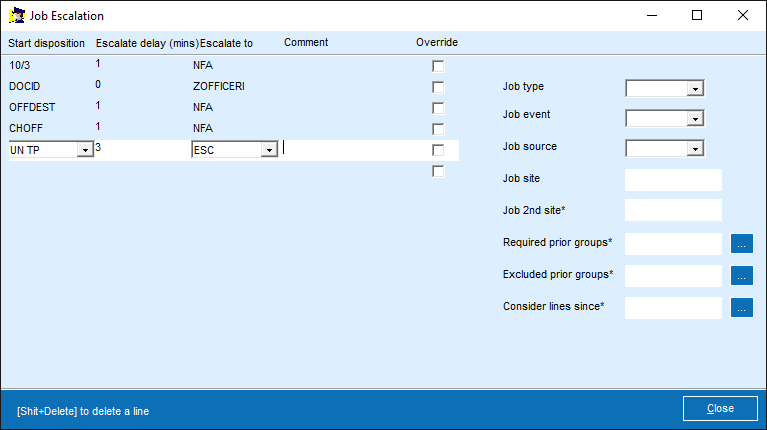Basic Customisation: Escalation
Auto-closing and auto-updating jobs
We can use job escalation to have GDS automatically update jobs in certain circumstances. You can use this to:
- automatically close a job when no further action is needed
- update or alert jobs that have been in a certain state for too long
- site: the primary site the job is dispatched to
- secondary site: the secondary site (e.g. the bank for a CIT job). We can specify the site code, or NONE to specify that the job should have no secondary site, or ANY if any secondary site is required (but must be present)
- prior groups: at least one of these groups must have occurred in the job so far
- excluded prior groups: groups that must not have occurred in the job so far
- lines since given group: only consider lines since given group. An example is where a job might go onsite several times, but we only wish to consider occurrences in the most recent visit.
You can find the Job Escalation maintenance screen under Maintenance->Job->Escalation. Here's what it looks like:

The main criteria are in the list on the left. By default, for any job that is in a state in the _start disposition_ column, GDS will 'escalate' that job to the state in the _escalate to_ column after the given number of minutes. It does this by adding an extra status line to the job with the new status.
A very simple example is automatically closing a job once the guard has been offsite. Fill in the offsite code (10/3) in this example, a number of minutes to wait (1 minute here) and a closing code (NFA). GDS will add an NFA line to the end job the job after it's been offsite for 1 minute, closing it.
We probably don't want to close every single job in this way, so we can specify additional criteria for each escalation line - this appears on the right. The example shown above is set to only escalate and close CASH type jobs. This would be suitable for Cash In Transit jobs, where it's generally useful to auto-close them once complete.
Escalating overdue jobs
Escalation can also be used to update jobs that are overdue for action. For example, if a guard does not respond to a newly-dispatched job in a reasonable period of time, the job can be escalated so that it is brought to the attention of the operators in the control room.

In this case we move a job that hasn't been responded to into the ESC (ESCalated) state. This state has a higher priority, so it appears at the top of the screen where the operators will see it. We can also have audible alerts tied to the state so that GDS makes warning sounds for jobs that need attention.
Additional criteria
Escalation can be restricted by job type, event and source. To escalate for different combinations of job type, event or source add an additional line to cover each combination.
It is also possible to restrict criteria based on:
The additional criteria items are useful for handling between different job workflows. For a job with only a primary site and no destination, we can set it to auto-close after the officer has gone offsite from the primary site (set 2nd site to NONE). For a Cash In Transit job we want to wait until the officer has visited the destination (set 2nd site to ANY).